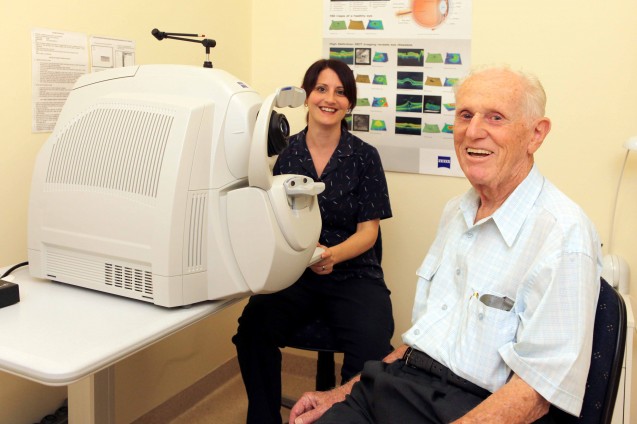Vision Loss
Vision loss can change your life dramatically. At first, everyday activities may be difficult or impossible. However, support and advice are available to help people who are blind or have vision loss live independently and adapt to life with vision impairment. For many people, there is no need to give up activities they enjoy.
Vision loss can affect people of all ages, but approximately two thirds of those who are vision impaired are over the age of 65. There are many types of vision impairment and each has a different effect on a person’s ability to see and on their mobility. Some vision loss can be prevented, while other conditions may be hereditary or develop as people age. About six per cent of people in Australia with vision impairment are totally blind.
Types of vision loss
The major causes and effects of vision impairment are:
- age-related macular degeneration – causes distortion or loss of central vision in older people, resulting in difficulties with activities such as reading and recognising faces
- diabetic retinopathy – symptoms include blurring and patchiness in vision. The underlying cause is diabetes
- glaucoma – causes tunnel vision and affects safe mobility and driving
- cataracts – cause blurring of vision and increased sensitivity to glare, but can be corrected by surgery
- refractive error – half of all vision impairment in Australia is due to under-corrected refractive error. Types of refractive error include long-sightedness, short-sightedness, astigmatism and presbyopia. Refractive error can be improved by wearing glasses
- vision loss in children – there are many diseases, defects, malformations, infections and disorders that can affect the visual system in infants. Seeing is an important way for infants to learn. Vision impairment can influence the normal development of body control, hand use, language and social behaviours.
Vision loss services
Vision loss services provide support and advice to people of all ages and with all degrees of vision impairment or blindness. You can get assessment of optical and other devices as well as support in developing strategies to make best use of your remaining vision. Occupational therapists offer advice and guidance on increasing your independence in a wide variety of everyday activities. You may also need support in making changes to your home and workplace or training in the use of adaptive equipment or a guide dog. See Vision Australia for more information.
The kinds of support available include:
- Training in the use of different mobility devices, such as a white cane, or in living with a guide dog. This helps people to move about safely and confidently in their community
- Advice on special devices such as large print and touch markers. These allow people to use appliances like washing machines and ovens more easily and safely
- Radio stations for people who are unable to read the standard printed word. RPH Print Radio stations read out newspapers, magazines and books on air as well as providing other specialist programs of interest
- Libraries of books, recipes and government information available in large print, cassette, braille or CD format
- A wide range of equipment to help people with vision impairment in their everyday lives – for example needle threaders, talking watches and clocks, coin and note holders
- For people with some vision, a growing range of videos that include descriptions of the visual information when there are gaps in the dialogue
- Low-vision clinics offering spectacles, magnifiers, telescopes and other devices that can enhance remaining vision.

